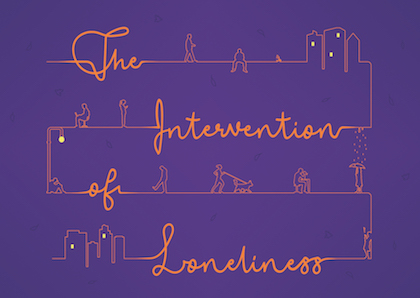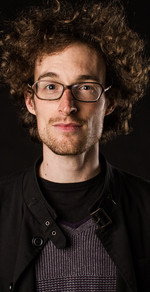— Kann nicht mehr besucht werden —
 1
1 2
2
- Collaborative dance performance + Post-show talk; systemic loneliness
- collective action
- collaborative performance
-
Fr., 06.12.2019, 20:30
Audience Talk following 'The Intervention of Loneliness'
Many of us are lonely, even though we are living in a highly interconnected and globalized world. How can we confront the loneliness we experience? In 'The Intervention of Loneliness', we come together to transform loneliness from a place of separation and isolation into a cause for collective action. After the show there will be an audience talk to share our experiences and thoughts.
- 1Foto © Mattias Fridl
- 2 Mathieu Pelletier, Schauspieler
After the performance, there will be a moderated talk with the artist, looking at the theme and aspects of the performance. The performance serves as a starting point to talk about the topic of loneliness and to learn more about the artist's practice in collaborative performances. In addition, the audience can share their perspectives and experiences of the performance.
Die Tickets (12 € Normal, 8 € ermäßigt) für die Vorstellung inkl. der kostenlosen Teilnahme an der Gesprächsrunde können Sie auch direkt über Theaterscoutings Berlin reservieren! Schreiben Sie einfach (bis einen Tag vor der Vorstellung) eine Email mit der gewünschten Anzahl an Tickets an reservierung(at)theaterscoutings-berlin.de.
Natürlich sind auch spontane BesucherInnen herzlich willkommen, allerdings ohne Kartengarantie für die Vorstellung.
Ablauf:
20:30 Vorstellung
Im Anschluss: Gesprächsrunde
Fragen? Die Personen mit den pinken Theaterscoutings-Buttons sind vor Ort für Sie da.
Karten-Online: Karten online bestellen
-
Fr., 06.12.2019, 20:30
About the venue
Uferstudios
Die Uferstudios in den Uferhallen sind ein Kultur- und Veranstaltungsort für zeitgenössischen Tanz in Berlin. In den Räumen der Uferstudios stehen 14 Studios und Künstlerateliers internationalen Choreografen, Tänzern und anderen darstellenden Künstlern sowohl für Produktion und Ausbildung als auch für öffentliche Aufführungen zur Verfügung. Das denkmalgeschützte Klinkersteinbäude wurde 1928 im Stil der Neuen Sachlichkeit mit expressiven Motiven nach Plänen des Architekten Jean Krämer errichtet- Zwischen 1873 und 2007 wurde das Gelände durch die Berliner Verkehrsbetriebe und ihre Vorgängerunternehmen als Betriebshof für die Pferdeeisenbahn und die Straßenbahn genutzt.
About the dance performance
The Intervention of Loneliness
Today we are living in the age of systemic loneliness. Even though we live in a highly interconnected and globalized world, many of us are lonely. Social media, technology, economic system, consumer culture, neo-liberal work ethics and urban way of living are contributing to the rise in loneliness and benefiting from it at the same time. Together they form a system that exposes us to loneliness on a daily basis and on a global scale. “The Intervention of Loneliness" is a response to the systemic loneliness and human disconnection that we experience and see around us. It is a collaborative performance that invites us to confront systemic loneliness together. How can we own loneliness, rather than letting it own us? How can we transform it from a place of separation and isolation into a cause for collective action? A spontaneous choreography emerges, as the audience negotiate for a common cause.
About the choreographer
Ming Poon
Ming Poon is a Berlin-based choreographer who was born in Singapore. He began his career as professional dancer in 1993, and started to develop his choreographic practice in 2010. He works with vulnerability, care, peripherality and failure as performance strategies. His works are designed as choreographic interventions, where spectators are invited to exercise their agency to create change. They usually take the form of collaborative performances, public interventions and one-to-one encounters. The idea is to activate the spectators to become spect-actors, so that their actions determine the development of the performance. For him, movement refers to the body’s ability to move, take action, and have agency to create change.www.mingapur.com
